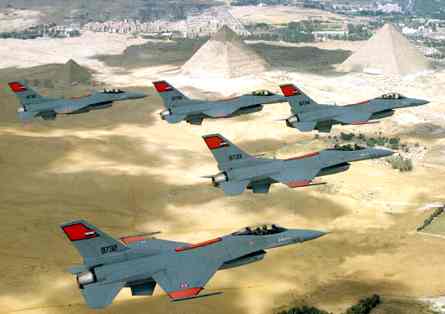skip to main |
skip to sidebar

(Commentary Magazine) As Iran teetered on the brink of revolution, the Carter administration transferred approximately 70 F-14 fighter jets to the Iranian air force. At the time, the F-14 was perhaps the top platform in the U.S. Air Force, a plane upon which a generation of American air defense rested. It is ironic that the Islamic Republic of Iran’s Air Force is today the only country that actively uses the F-14, although some U.S. National Guard units do also occasionally fly the plane.
Alas, President Obama appears determined to repeat Jimmy Carter’s mistakes. Giving Turkey the F-35 Joint Strike Fighter is bad enough. While Turkey was part of the consortium that built the fuselage, what Turkey now demands is the software codes and keys to the technology which make that fighter jet the platform upon which the next generation of American air power will rest.
As Daniel Pipes rightly points out, the statement by U.S. Ambassador to Egypt Anne Patterson is a must read for just how out of touch the Obama administration and the State Department have become on Egypt. In an article for COMMENTARY in October 2012, I examined how the West has whitewashed Islamism and gotten the Muslim Brotherhood wrong. No one doubts the organization’s early radicalism. In his 1964 manifesto Ma’alim fi al-Tariq (“Milestones”), influential Brotherhood theoretician Sayyid Qutb urged violent jihad to return Egypt and other majority Muslim lands to his ideals of purity. By doing so, he paved the intellectual route for Abdullah Azzam, Osama Bin Laden, and current al-Qaeda leader Ayman al-Zawahiri. Hassan Banna’s successor as leader of the Muslim Brotherhood was Hassan al-Hudaybi. He was long overshadowed by Qutb, but used Qutb’s 1966 execution as an opportunity to shift the Muslim Brotherhood’s approach. He published Du’at la Qudat (“Preachers, Not Judges”) that refuted Qutb’s radicalism. Largely on the basis of Hudaybi’s writing, the Muslim Brotherhood’s Western apologists say the Brotherhood has evolved, denounced violence, and shed its ideological rigidity.
Mohamed Morsi, however, should definitively end this debate. If Anne Patterson truly believes that Egypt can “continue to serve as a force for peace, security, and leadership as the Middle East proceeds with its challenging yet essential journey toward democracy,” and that arming Morsi, who prays for the eradication of world Jewry and embraces the most ridiculous conspiracy theories, will help Egypt toward that goal, then something has gone terribly wrong in Foggy Bottom.



